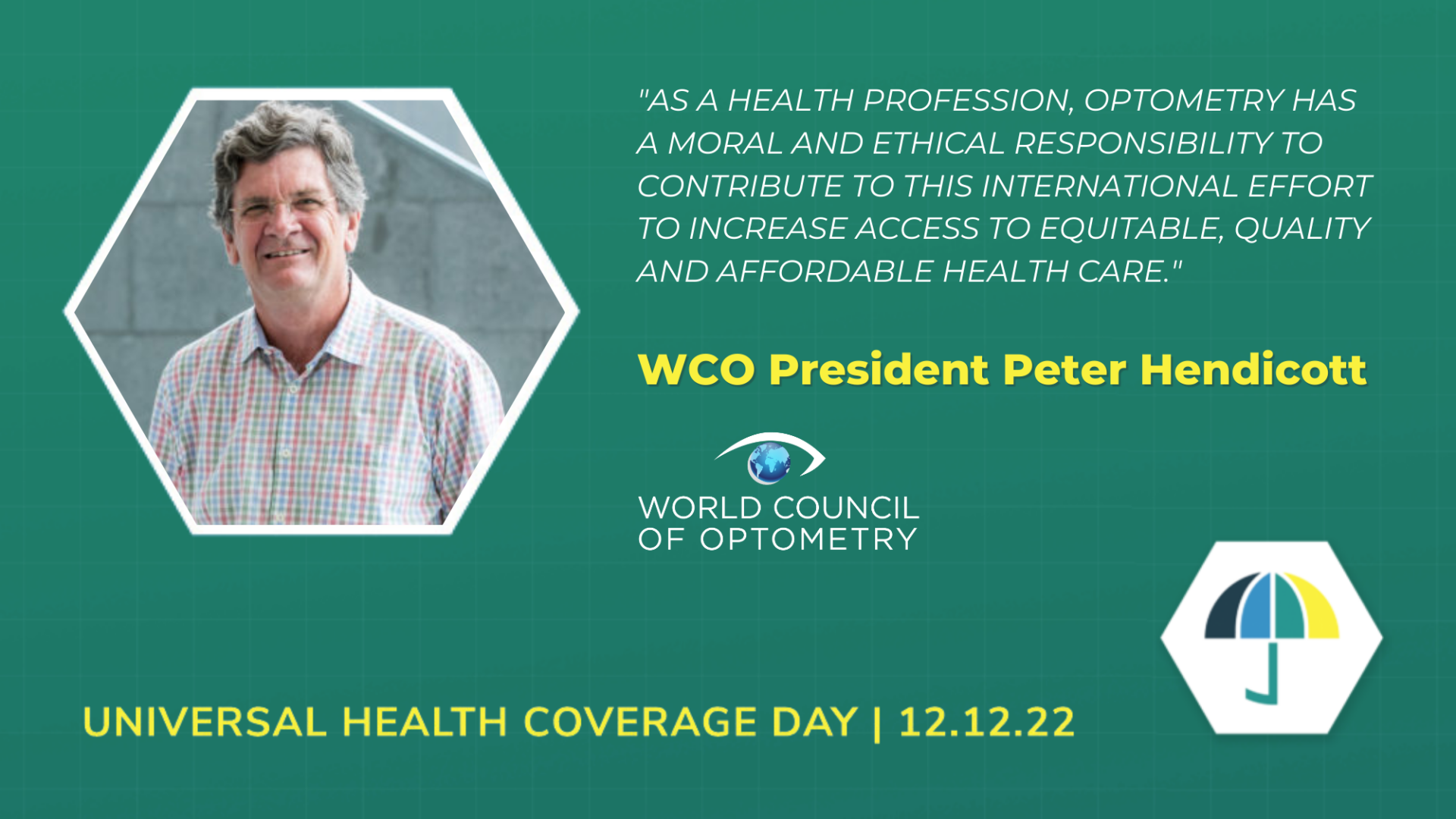Prof. Peter Hendicott, WCO President
Ten years ago, on 12 December 2012, the United Nations General Assembly endorsed a resolution urging countries to accelerate progress toward universal health coverage (UHC) – the idea that everyone, everywhere should have access to quality, affordable health care. International Universal Health Coverage Day aims to raise awareness of the need for strong and resilient health systems and universal health coverage.
The World Health Organization (WHO) describes UHC as all people being able to access the health services they need, when and where they need them, without financial hardship. Universal Health Coverage includes the full range of essential health services, from health promotion to prevention, treatment, rehabilitation, and palliative care.
So, ten years later, if we think about eye care, we still have over 1 billion people worldwide who experience vision loss primarily because they have no access to vision care, and where significant inequities exist in people’s ability to access vision care. Preventable vision loss is greater in areas of social and economic disadvantage, in rural areas, in older people, in ethnic minorities and indigenous peoples, and in women.
The WHO indicates UHC should be based on strong, people-centered primary health care, where a strong health system is based in the communities served by the health system and focus not only on preventing and treating disease and illness, but also on helping to improve well-being and quality of life. The United Nations General Assembly in July 2021 called on UN member states to include eye care within universal health care coverage, and to integrate people-centered eye care within health systems. The UN further called for member states to ensure access to eye care services for their population and to mobilize the necessary resources and support to contribute to global efforts to reach, by 2030, at least 1.1 billion people who have a vision impairment and currently do not have access to the eye care services they need.
As a health profession, optometry has a moral and ethical responsibility to contribute to this international effort to increase access to equitable, quality, and affordable health care. We need to ensure that optometry world-wide has the necessary knowledge, skills, and competencies to do this. In particular, optometry needs to demonstrate that it has competencies in ocular disease and the requisite clinical and management skills that support a primary health care role; and in public health so that optometry recognizes and contributes to the wider public and social needs of health care in terms of health care promotion, prevention, detection, and management. Optometry needs to look at how it can make eye care equitable, acceptable, and affordable, by looking at our current models of practice and considering ways to increase access through the practice of optometry in a range of health care settings within the community, by adopting technology which promotes the ability to provide increased levels of care in rural and remote settings, and through leadership roles in team-based care.
Our advocacy efforts towards eye care and its inclusion in universal health coverage should identify the roles optometry can play in a particular country’s health systems and the benefit of optometry involvement to the health system and to the population. Improved eye care not only leads to improved healthcare outcomes, but also improved social, financial, employment and educational outcomes as well. The World Council of Optometry supports International Universal Health Coverage Day, and urges individual optometrists, optometry educators and optometry professional organizations to advocate for UHC.


